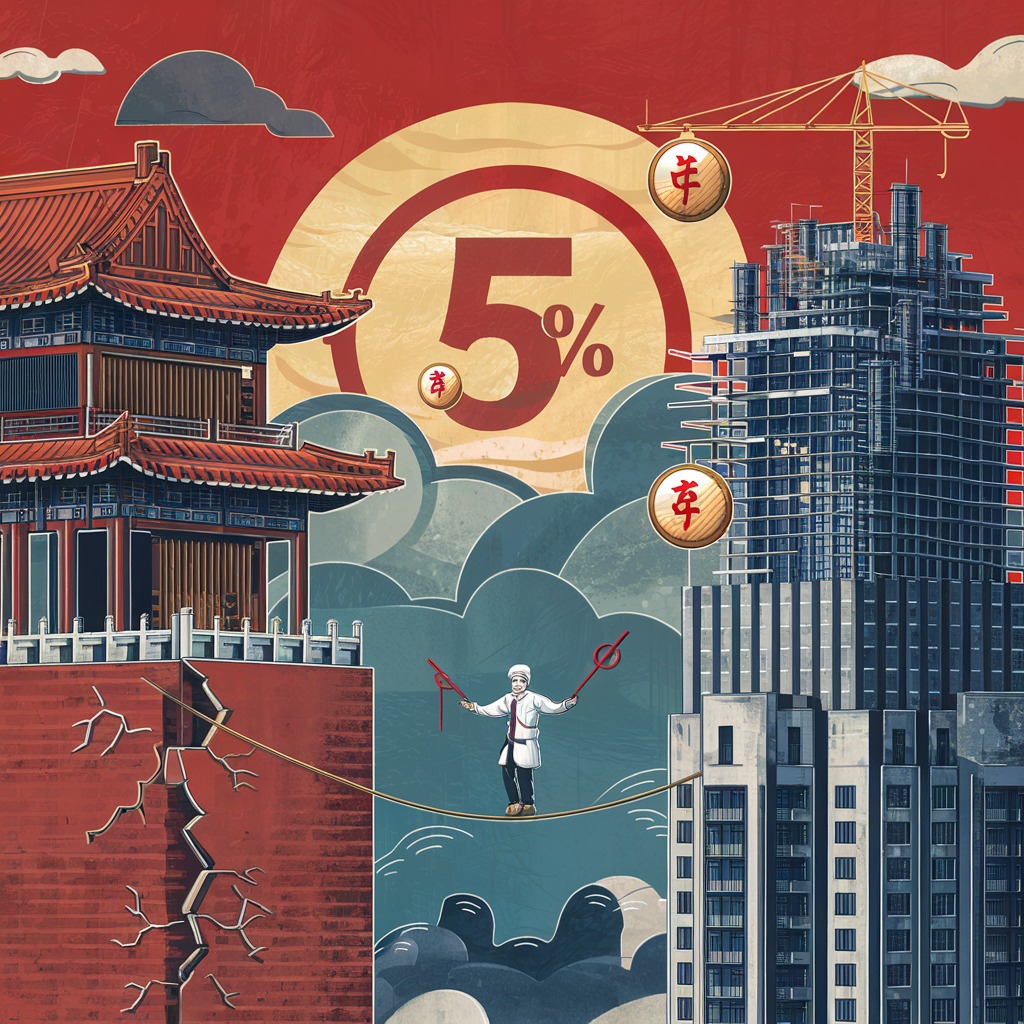BEIJING—China’s once-roaring economic engine is showing signs of strain, with the property sector’s decline threatening to derail growth targets and forcing Beijing to confront long-standing structural issues.
Recent data paints a sobering picture. New home sales dropped roughly 4% year-on-year in May, following a 3% dip in April—the worst performance in nearly a decade. Property investment has plummeted 10% since January, underscoring the depth of the real estate crisis.
“This downturn could significantly impede economic growth this year,” warns Lynn Song, chief Greater China economist at ING Bank.
The effectiveness of Beijing’s recent stimulus measures, including the sale of 1 trillion yuan ($138 billion) in ultra-long special sovereign bonds, remains uncertain. Analysts widely believe that public infrastructure spending, funded by debt, is critical for China to hit its ambitious 5% annual growth target.
All eyes are now on the upcoming Third Plenum, a key Communist Party meeting typically focused on major reforms. Delayed from last October due to economic uncertainty, the gathering offers President Xi Jinping a chance to outline solutions for the property crisis and reignite reformist momentum.
“China’s domestic demand is weakening due to the property market collapse and sluggish private consumption,” notes Brian Coulton, an economist at Fitch Ratings. “However, loosened fiscal policy and rebounding exports are supporting real GDP, despite prevalent deflationary pressures.”
The external sector offers a glimmer of hope, with overseas shipments jumping 7.6% year-on-year in May—the fastest pace in over a year. But escalating U.S.-China trade tensions cast a long shadow over export prospects.
As global economic headwinds intensify, with the U.S. Federal Reserve maintaining a hawkish stance and Europe’s growth stagnating, China faces mounting pressure to retool its growth mechanisms.
Kelvin Lam of Pantheon Macroeconomics anticipates that upcoming policies, such as a trade-in replacement scheme for vehicles and appliances, could boost household and business demand. “This might spark some demand-led inflation,” Lam suggests.
Yet the real test lies in how Xi and Premier Li Qiang signal plans for rapid structural enhancements. Mark Williams of Capital Economics believes the Third Plenum might conclude with “a commitment to wide-ranging reforms, stirring hopes of significant change.”
Housing policy reforms are likely on the agenda, with Carlos Casanova of Union Bancaire Privée noting that cities are increasingly lifting restrictions on investment properties. A formal shift in approach is expected this summer, potentially involving greater support for indebted developers despite “moral hazard” concerns.
Looking ahead to 2024, Xi’s primary goal is to stimulate consumer spending and reduce savings to maintain growth near 5%. This involves boosting incomes, strengthening social safety nets, and developing reliable capital markets for average Chinese investors.
Simultaneously, China is accelerating its transformation into a high-tech powerhouse. Xi’s “Made in China 2025” plan involves substantial investments in future industries like 5G, electric vehicles, and AI. However, economists warn that unless China addresses its economic vulnerabilities, it will continue to grapple with boom-bust cycles.
“A robust domestic demand recovery necessitates decisive actions to tackle the property sector’s woes and high local government debt,” emphasizes Lam.
As market sentiment wavers and policymakers weigh their options, China’s ability to implement robust reforms will be crucial. The country’s future economic stability and growth hinge on navigating these choppy waters with skill and determination. (Compiled from media reports)













